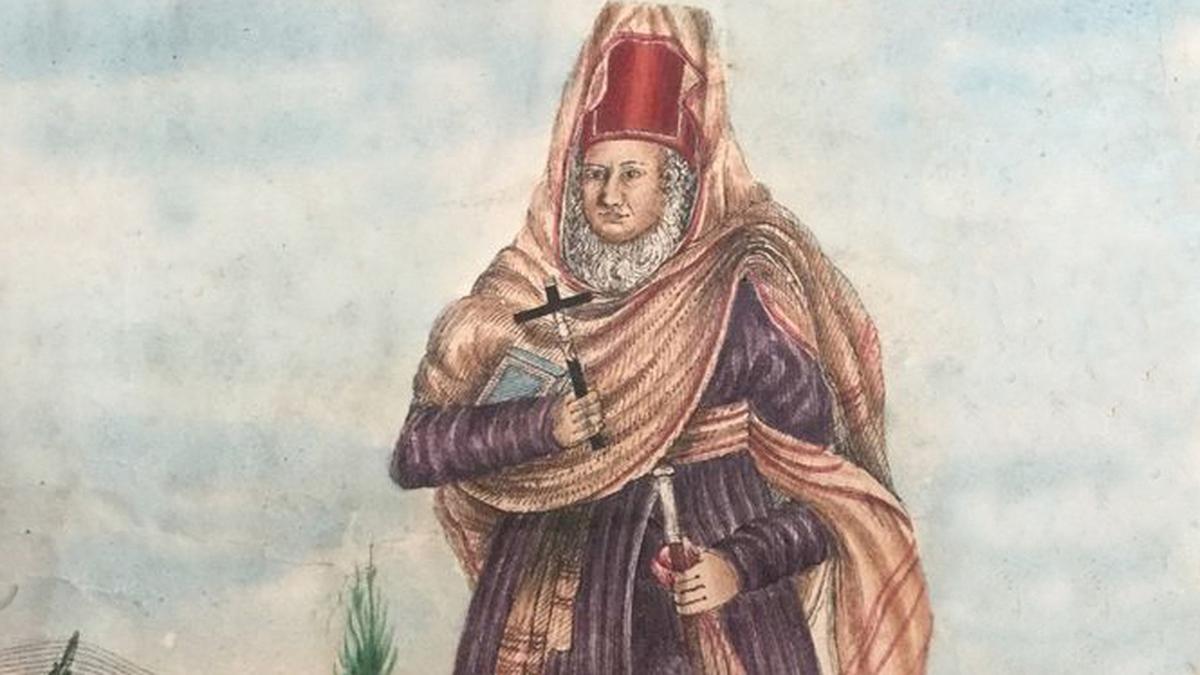
Constantine Joseph Beschi, a missionary, Tamil scholar, and Chanda Sahib’s Dewan
The Hindu
Constantine Joseph Beschi, a missionary, Tamil scholar, and Chanda Sahib’s Dewan
The Jesuits, or members of the Society of Jesus, are driven by the motto: “Walk with the poor, the outcasts of the world, those whose dignity has been violated, in a mission of reconciliation and justice”. But Constantine Joseph Beschi, the Italian Jesuit missionary and Tamil scholar, known as Veeramamunivar, had also maintained a close friendship with Chanda Sahib, the Nawab of the Carnatic. He had even acted as his Dewan.
While views differ on the subject, the first biography of Veeramamunivar in Tamil written by A. Muttusami Pillei, manager of the College of Fort Saint George and Moonshee (secretary) to the Tamil Translator to Government, confirms the friendship. Though Muttusami Pillei had begun his work on the biography in 1822, it was published only in 1843, three years after he died.
“On his [Veeramamunivar] first visit, Chundah Saib conferred on him the surname, Ismattee Sannyasi, indicating his excellence as a religious devotee, and presented him with a palankeen [palanquin] inlaid with ivory, in which his grandfather, Sadoolah Khan, used to write,” according to the book, of which English translation was released by Emerald Publishers recently.
The book has been compiled by K. Subashini and Anand Amaladass, two scholars on Veeramamunivar and his works.
Chanda Sahib also gifted Veeramamunivar four villages — Bokalur, Malwav, Arasur and Nullur — north of the Kollidam in Tiruchi district, yielding a net revenue of ₹12,000 a year. He also appointed him to the office of Dewan.
“Whilst in that office, he retained the habit of a religious devotee, and on his circuits assumed all the pomp and pageantry with which Hindoo gurus usually travel, along with the civil Mahomedan honours, such as cheddars, horsemen. drums, fifes, caparisoned state horses, hurcarrahs, daloyets, nowbut, tents, etc,” writes Muttusami Pillei, who made a field visit before writing the biography.
The book, he said, was commissioned by British officials Benjamin Guy Babington, who possessed an extensive and profound knowledge of Sanskrit, and Richard Clarke, skilled in the dialects of Tamil language and a distinguished faculty member of the Madras College. He has also acknowledged the help from F.W. Ellis, the British civil servant and a scholar in Tamil and Sanskrit, who had classified Dravidian Languages as a separate family of languages even before Robert Caldwell.











